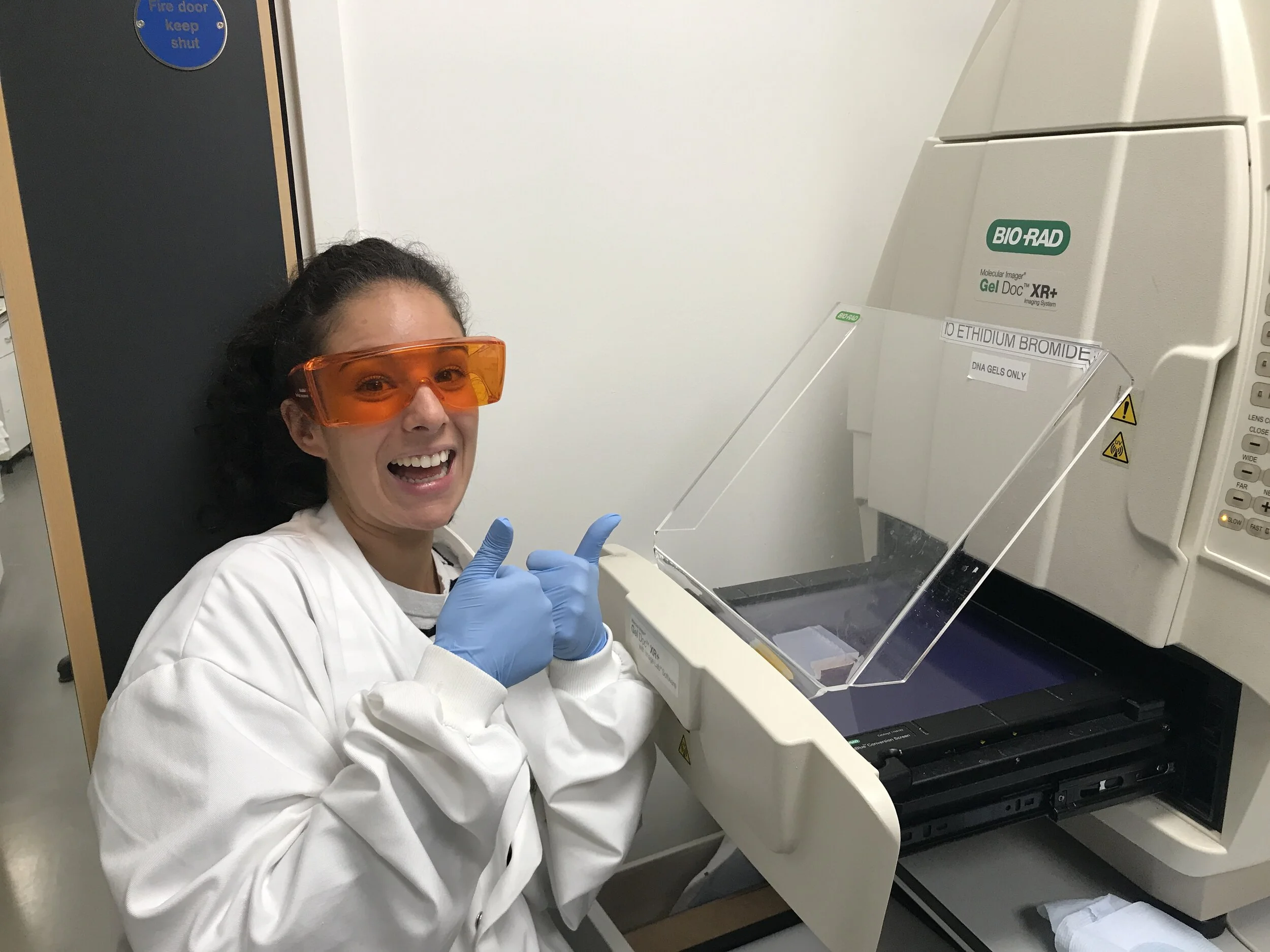Federica Riccio
Academic and Work Experience Prior to Sept 2018 Programme Start
I completed my undergraduate and master’s degree in Pharmaceutical Biotechnology at the University of Milan (Italy). During my BSc I examined the molecular mechanisms of stress in the development of depression (University of Milan).
During my MSc my work focused on the crystallisation of a Dengue virus protein for drug discovery purposes (internship at University College London). After graduating, I enrolled in the ORISE post-bac fellowship program at the National Institutes of Health (USA) where I worked on a basic cell biology project, looking at the interplay between structure and function of the endoplasmic reticulum.
PhD Programme – Year 1 – MRes and Project Rotations
During my first rotation project I worked with Dr Eileen Gentleman and Dr Tamir Rashid investigating the effect of co-culture, substrate mechanical properties and spatial dimensionality on human iPSC-derived hepatocytes maturation. Specifically, we combined classic chemical differentiation, with co-culture alongside HUVECs in a 3D PEG-based hydrogel system with defined biomechanical properties and stiffness similar to that of hepatic tissue.
In my second rotation project I worked under the supervision of Dr Francesca Spagnoli to resolve pancreatic progenitor heterogeneity using single molecule RNA in situ hybridisation techniques as follow up approaches to spatially correlate single cell RNA-seq data.
In my final rotation project, I worked with Dr Ivo Lieberam and Dr Juan Burrone towards the development of a human iPSC-based in vitro disease model of epilepsy. The model comprises the co-culture of excitatory cortical neurons and inhibitory interneurons expressing two spectrally distinct optogenetic probes that allow for independent electrophysiological manipulation of the neuronal populations in co-culture.
PhD Programme – Years 2 to 4 – Doctoral Studies
For my PhD project I have joined Dr Ivo Lieberam’s and Dr Juan Burrone’s lab. The project will focus on Dravet syndrome, a rare form of infantile epilepsy primarily caused by loss-of-function mutations in the gene SCN1A encoding the voltage-gated sodium channel NaV1.1.
The quality and duration of life of Dravet syndrome patients is severely compromised by the gravity of the epileptic symptoms and associated cognitive/behavioural disorders and, to date, standard treatments have very limited efficacy. With this project, we aim to generate a novel hiPSC-based disease model for Dravet syndrome suitable for testing chemical and gene/cell-based therapies. First, we aim to differentiate GABAergic inhibitory interneurons and excitatory cortical neurons from wildtype control and patient-derived hiPSC lines.
These neuronal populations will be functionalised with specific markers for their isolation and optogenetic probes for the manipulation of their activity. The functionalised neuronal populations will then be combined into a co-culture in order to generate in vitro human neural circuits that constitute the base of the disease model. Following the establishment of the co-culture, we aim to characterise the model and validate it using known chemical compounds adopted in the treatment of Dravet syndrome.
Ultimately, we aim to use this refined in vitro model as a drug screening platform for the identification of novel Dravet syndrome treatments and as a potential model for cell therapy-based applications aimed at restoring the excitation/inhibition balance in compromised neural circuits.
Federica Riccio gives 2 thumbs up after successful cloning to build integration plasmids that will be used to generate inducible neuronal lines.


